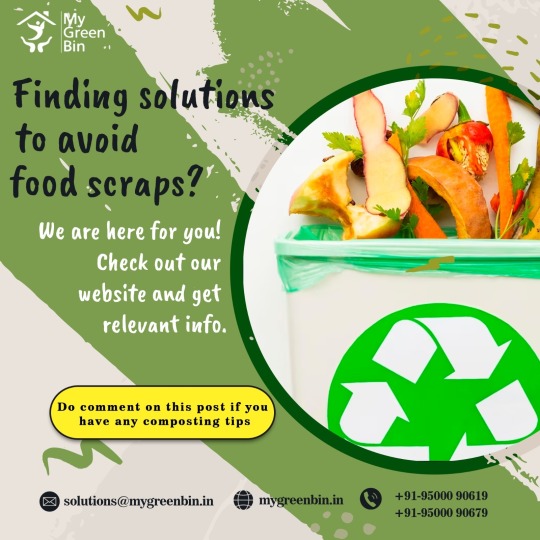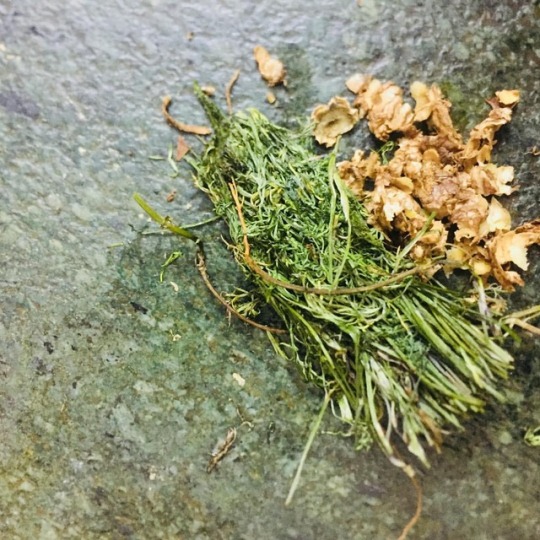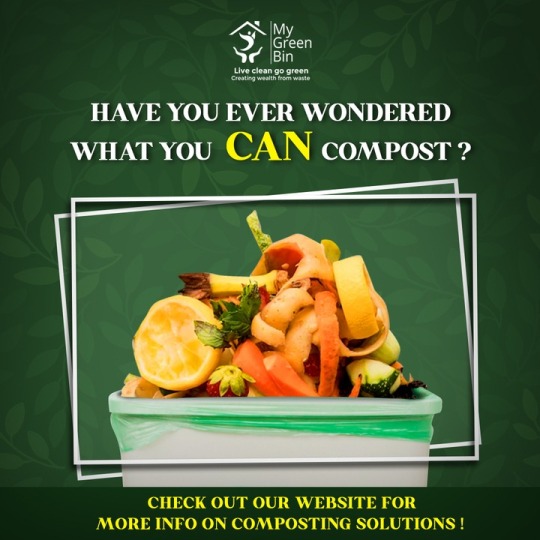#CompostAtHome
Explore tagged Tumblr posts
Text
How to Compost at Home Using Just a Bin and Kitchen Waste
Composting isn’t just for gardeners with big backyards—it’s something anyone can do with just a bin and kitchen waste. In fact, one of the easiest ways to reduce household waste, enrich your soil, and help the environment is by learning to compost at home. No fancy tools, big gardens, or complex systems required—just a little know-how, a container, and your everyday food scraps.
In this guide, we’ll walk you through the simple steps of home composting, explain what you can and can’t compost, and share practical tips on how to make compost at home without mess or odor. Let’s get started!
Why Compost at Home?
Before jumping into the “how,” let’s talk about the “why.” Composting is a natural process where organic materials like food scraps and plant waste break down into nutrient-rich soil. This process not only reduces landfill waste but also creates a powerful fertilizer for your plants, garden, or even indoor pots.
Benefits of Home Composting:
Reduces kitchen waste by up to 30%
Cuts down on methane emissions from landfills
Improves soil health and plant growth
Saves money on store-bought fertilizer
Connects you to sustainable, low-waste living
What You Need to Compost at Home with Just a Bin
You don’t need a big composting tumbler or outdoor pile. All you need is:
A Bin or Container
Use a plastic storage bin with a lid, a metal bucket, or even a store-bought kitchen compost bin. Make sure it has a few holes for ventilation.
Kitchen Waste (Green Material)
These are your nitrogen-rich items. Examples include:
Fruit and vegetable peels
Coffee grounds and tea bags
Eggshells
Leftover salad greens (no dressing)
Dry Waste (Brown Material)
These are carbon-rich items. Balance is key. Examples include:
Shredded newspaper or paper towels
Dry leaves
Cardboard (small pieces)
Sawdust (untreated wood only)
A good compost pile needs a balance of greens (wet/kitchen waste) and browns (dry/paper/leaves). Aim for a 2:1 ratio of browns to greens.
Step-by-Step Guide to Compost at Home
Here’s how to get started with home composting using only a bin and your daily kitchen scraps:
Step 1: Prepare Your Bin
Choose a bin with a lid and drill a few small holes for airflow. If your bin will sit indoors, place it in a ventilated area like a balcony, utility space, or under the kitchen sink.
Line the bottom with a layer of shredded newspaper or dry leaves.
Step 2: Add Kitchen Waste
Each day, add your food scraps. Chop larger items to help them break down faster. Avoid adding too much at once to prevent odor or sogginess.
Step 3: Balance with Brown Waste
After every 1–2 layers of kitchen waste, add a handful of dry materials. This keeps the compost from getting too wet and smelly.
Step 4: Stir or Mix Weekly
Use a stick or spatula to mix the contents once a week. This introduces air and helps speed up decomposition.
Step 5: Keep It Moist (But Not Wet)
Your compost should feel like a wrung-out sponge—moist but not dripping. If it’s too dry, spray a little water. If it’s too wet, add more dry materials.
Step 6: Let It Break Down
In 4–6 weeks (or up to 8, depending on conditions), you’ll start to see dark, crumbly compost. It should smell earthy—not rotten.
What to Compost and What to Avoid
Good to Compost:
Fruit and veggie scraps
Coffee grounds
Tea bags (no staples)
Eggshells
Paper towels
Dry leaves
Avoid Composting:
Dairy products
Meat, bones, and fish
Oily or greasy food
Plastic tea bags
Synthetic materials
Pet waste
These items can attract pests or slow down decomposition.
Troubleshooting Tips for First-Time Home Composters
Problem: Compost smells bad
Fix: Add more brown material (paper, leaves). Stir it well for airflow.
Problem: Compost is too dry
Fix: Lightly mist with water and mix.
Problem: Flies or fruit bugs
Fix: Always cover food scraps with a layer of dry waste. Close the lid tightly.
How to Use Your Finished Compost
Once your compost looks dark, crumbly, and smells earthy, it’s ready! Here’s how you can use it:
Mix into soil for potted plants
Spread on your balcony or terrace garden
Use in seed-starting trays
Gift to gardening friends or local plant communities
Home composting not only reduces waste but rewards you with rich, natural fertilizer—free of chemicals and full of life.
Final Thoughts
Learning how to compost at home is one of the easiest, most impactful steps you can take toward a sustainable lifestyle. With just a bin, some patience, and your kitchen waste, you’ll be turning trash into treasure in no time.
Whether you’re in an apartment or a house, home composting gives you a daily opportunity to be more mindful of what you throw away—and a simple way to give back to the earth, one peel or coffee ground at a time.
So grab that bin, collect your scraps, and start composting today. Nature (and your plants) will thank you.
#CompostAtHome#HomeComposting#HowToMakeCompostAtHome#KitchenCompost#SustainableLiving#ZeroWasteLifestyle#CompostBinDIY#UrbanComposting#EcoFriendlyLiving#CompostTips#WasteToWealth
0 notes
Text
Reduce Food Waste Today!
Say NO to Food Waste! 🚫🍲 Visit our website and explore effective strategies to prevent food scraps. Share your composting hacks to help others reduce their environmental footprint. 🌿🌍
Call : +919500090619 Visit : https://www.mygreenbin.in

#SustainableLiving#ZeroWaste#CompostHeroes#HomeComposting#CompostAtHome#ReduceWaste#EcoFriendly#WasteReduction#GreenGardening#OrganicGardening#HealthySoil#CompostBin#GardenComposting#CompostTips#GreenThumb#CompostLove#WormComposting#NaturalFertilizer#CommunityComposting#SustainableWasteManagement#greeninitiativebynu
0 notes
Text

How to Make Organic Compost at Home
Turn your kitchen and garden waste into rich, black gold! Follow these simple steps to create organic compost at home using dry leaves, peels, and a little care. It's eco-friendly, cost-effective, and perfect for healthy plants.
Visit The Website for more ideas
https://homegardeen.com
#OrganicCompost #HomeGardening #EcoFriendly #SustainableLiving #CompostAtHome #SoilHealth #ZeroWaste #GardeningTips #DIYCompost #GreenLiving
0 notes
Photo

Compost comes in many shapes and sizes. Theres a fit for you. Maybe its and #earthmachine maybe its a #wormbin but there is a way that your waste can help your food tomorrow. Start small a little corner of your garden for an easy pile. Its so easy you really will surprise yourself. #saveourcompost #compostathome #composteasy #compost #reuse #browngold https://www.instagram.com/p/CA9OVFdg_nn/?igshid=t6ikvlblyiuf
0 notes
Photo

Ne rate pas les explications passionnantes sur le @bokashicompost à la Fête de l'avenue de Tervueren :-) #bokashi #compost #compostathome #kitchen #zerodechets #recycle #terreau #fermentation #jefermentemapoubelle (à Avenue de Tervueren) https://www.instagram.com/p/BxXXNydBd0D/?utm_source=ig_tumblr_share&igshid=qhymap0bm25n
#bokashi#compost#compostathome#kitchen#zerodechets#recycle#terreau#fermentation#jefermentemapoubelle
0 notes
Photo

They call it kitchen waste, I call it gold. I am pretty generous when it comes to cleaning herbs and vegetables and letting go with the bottom of the Coriander bunch. Not because Im lazy but because I know its going to become compost for my kitchen garden. Its been three whole successful months, where absolutely no wet waste leaves our house. Only dry waste which has only 20% plastic and mostly paper and cloth. Trying our best to save the planet, one step at a time. #notwasted #compostathome #kitchenwaste #noplastic #nopackagedfood #lesswaste #betterworld #saveplanet #startathome #van_gogreen #vaidehiadithyanair
#van_gogreen#kitchenwaste#startathome#vaidehiadithyanair#nopackagedfood#noplastic#compostathome#saveplanet#lesswaste#betterworld#notwasted
0 notes
Text
Home Composting in a Nutshell
Home composting is a simple and natural way to recycle your kitchen and garden waste into nutrient-rich soil. Instead of throwing away food scraps and dry leaves, you can turn them into compost that helps your plants grow better. It reduces the amount of garbage you send to landfills and makes your garden greener and healthier. All you need is a small bin, a mix of greens and browns, and a little patience. Home composting is easy, eco-friendly, and a great step toward sustainable living.
#HomeComposting#CompostAtHome#EcoFriendlyLiving#SustainableLiving#GoGreen#ZeroWasteHome#OrganicWaste#CompostLife#GreenLiving#SoilHealth#WasteToCompost#KitchenCompost#DIYComposting#BackyardCompost#CompostingTips
0 notes
Text
How to Make Compost at Home Without Any Smell
Composting is one of the most eco-friendly ways to manage kitchen waste, nourish your plants, and contribute to a cleaner planet. But let’s be honest — the idea of home composting often brings one concern to mind: the smell. If you’re wondering how to make compost at home without any smell, you’re not alone. The good news? Odor-free composting is not only possible, it’s easy when done right.
In this guide, we’ll walk you through how to create rich, healthy compost without the stink — even in small spaces like balconies or apartments.
Why Does Compost Smell?
Before we get into the how, let’s understand the why.
Compost smells when it becomes unbalanced. A well-maintained compost pile should smell earthy — like fresh soil. Foul odors usually come from:
Too much wet or nitrogen-rich material (like food scraps)
Not enough air circulation
Improper ratio of green to brown matter
Presence of meat, dairy, or oily items
Solving these problems will lead to odorless (and successful) compost.
Choosing the Right Compost Bin for Home Use
The first step in how to make compost at home without the smell is selecting the right bin. Whether you’re composting in your backyard or in an apartment, the container you use plays a huge role.
For outdoor composting, consider:
Aerated compost bins with lids
Tumbling composters for easy mixing
For indoor composting, options include:
Bokashi bins (anaerobic fermentation that minimizes smell)
Worm composting bins (vermicomposting)
Countertop compost bins with carbon filters
Whatever you choose, make sure it’s well-ventilated and easy to access for turning or adding scraps.
Maintain the Right Green-to-Brown Ratio
This is one of the most important tips to avoid smelly compost. A good compost pile is all about balance.
Green materials (wet): Fruit/vegetable peels, coffee grounds, fresh grass clippings
Brown materials (dry): Dried leaves, shredded newspaper, cardboard, sawdust
The ideal ratio is about 1 part green to 3 parts brown. If your compost smells sour or like ammonia, you probably have too much green. Add dry browns to neutralize the odor and restore balance.
Chop and Layer Your Waste
Large chunks take longer to break down and can cause uneven composting, which leads to smell.
Chop food scraps into smaller pieces before adding them
Layer green and brown materials instead of tossing everything in randomly
Always cover kitchen scraps with a layer of dry matter to block moisture and odors
This not only speeds up decomposition but also reduces the chance of rot and foul smell.
Turn or Mix the Compost Regularly
Air is essential for odor-free composting. When your compost sits too long without airflow, anaerobic (low oxygen) conditions develop — and that’s when things start to stink.
Use a pitchfork or compost aerator to turn the pile once a week
For tumblers, rotate the bin every 2–3 days
Indoor bins may need occasional stirring, depending on the method
Regular mixing introduces oxygen, helps materials break down evenly, and keeps bad bacteria away.
Avoid These Smelly Mistakes
If you’re new to home composting, it’s easy to make a few rookie errors. Avoid adding the following items to keep things clean and odorless:
Meat, bones, fish, or eggs (can rot and attract pests)
Dairy or oily foods (slow to break down and smell bad)
Diseased plants or pet waste (can contaminate your compost)
Stick to fruit and veggie scraps, coffee grounds, and yard waste for a safe, stink-free compost pile.
Use Compost Accelerators or Microbial Starters
If your compost pile is slow and starting to smell, adding a natural compost activator can help.
Try:
A handful of finished compost (it has live microbes)
Commercial compost starters (available online or at garden centers)
Garden soil or aged manure in small amounts
These help speed up decomposition and keep the microbial balance in check.
Keep the Moisture Just Right
Too much moisture leads to soggy compost — a major cause of bad odor. Your compost should feel like a wrung-out sponge: damp but not dripping.
If it's too wet:
Add dry browns like cardboard or sawdust
Avoid adding water-heavy fruits like melons all at once
If it's too dry:
Sprinkle a bit of water or add fresh greens
Monitoring moisture ensures the ideal environment for clean, healthy compost.
What to Do if Your Compost Already Smells
Sometimes, even with good intentions, your compost may develop a bad odor. Here’s what to do:
Smells like ammonia? Add more browns (dry leaves, shredded newspaper).
Smells rotten or sour? Turn the pile, add dry materials, and make sure there's enough air.
Smells like rotten eggs? You likely have anaerobic conditions — turn the pile immediately and add browns.
Don’t panic — most composting issues are easily fixed with simple tweaks.
Benefits of Odor-Free Home Composting
Once you master how to make compost at home without any smell, the rewards are many:
Reduces kitchen and garden waste
Creates free organic fertilizer for plants
Improves soil health and plant growth
Saves money on store-bought compost or chemical fertilizers
Promotes sustainable living and reduces landfill pressure
Plus, it just feels good to know you’re doing your part for the environment — without having to deal with any unpleasant smells.
Final Thoughts
With a little care and consistency, home composting doesn’t have to be messy or smelly. By managing your greens and browns, aerating regularly, and choosing the right materials, you can enjoy nutrient-rich compost in just a few weeks — odor-free.
If you’re serious about sustainability, learning how to make compost at home is one of the simplest and most impactful steps you can take. And now, you can do it with confidence — and a fresh-smelling home!
#CompostAtHome#HomeComposting#HowToCompost#ZeroWasteLiving#EcoFriendlyTips#CompostWithoutSmell#SustainableHome#WasteManagement#OrganicLiving#KitchenCompost
0 notes
Text
Have you ever wondered what you can and can't compost?
Curious about composting? 🌱 Discover what you can and can't compost with our helpful guide! Reduce waste and nourish your garden. Check out our website for composting solutions and share your favorite tips in the comments below!


Call : +919500090619 Visit : https://www.mygreenbin.in
#HomeComposting#CompostAtHome#SustainableLiving#ReduceWaste#EcoFriendly#WasteReduction#GreenGardening#OrganicGardening#HealthySoil#ZeroWaste#CompostBin#GardenComposting#CompostTips#GreenThumb#CompostLove#WormComposting#NaturalFertilizer#CommunityComposting#SustainableWasteManagement
0 notes
Text
Love the environment?
Compost for a cleaner future! 🌱 Reduce waste, cut methane emissions, and protect our environment. Join the composting movement today!
Call : +919500090619
Visit : https://www.mygreenbin.in


#HomeComposting#CompostAtHome#SustainableLiving#ReduceWaste#EcoFriendly#WasteReduction#GreenGardening#OrganicGardening#HealthySoil#ZeroWaste#CompostBin#GardenComposting#CompostTips#GreenThumb#CompostLove#WormComposting#NaturalFertilizer#CommunityComposting#SustainableWasteManagement#GreenInitiative
0 notes
Text
Tired of throwing away food scraps?
Wasting food is a thing of the past! Join the composting movement and transform your leftovers into a natural fertilizer.
Call : +919500090619 Visit : https://www.mygreenbin.in
#HomeComposting#CompostAtHome#SustainableLiving#ReduceWaste#EcoFriendly#WasteReduction#GreenGardening#OrganicGardening#HealthySoil#ZeroWaste#CompostBin#GardenComposting#CompostTips#GreenThumb#CompostLove#WormComposting#NaturalFertilizer#CommunityComposting#SustainableWasteManagement#GreenInitiative
0 notes
Text
Want to reduce waste and create a thriving garden?

Did you know that composting helps cut down waste and enriches your garden? 🌱♻️ Learn the secrets to successful composting and turn your kitchen scraps and yard trimmings into nature's gold.
Call : +919500090619 Visit : https://www.mygreenbin.in
#HomeComposting#CompostAtHome#SustainableLiving#ReduceWaste#EcoFriendly#WasteReduction#GreenGardening#OrganicGardening#HealthySoil#ZeroWaste#CompostBin#GardenComposting#CompostTips#GreenThumb#CompostLove#WormComposting#NaturalFertilizer#CommunityComposting#SustainableWasteManagement#GreenInitiative
1 note
·
View note
Text
Home Composters
Transform organic waste into nutrient-rich manure with GRC 25 (PP) - a powerful solution for sustainable gardening! Go green today!
Call : +919500090619 Visit : https://www.mygreenbin.in

#HomeComposting#CompostAtHome#SustainableLiving#ReduceWaste#EcoFriendly#OrganicGardening#HealthySoil#ZeroWaste#CompostBin#GardenComposting#CompostTips#GreenThumb#CompostLove#WormComposting#NaturalFertilizer
0 notes
Text
From scraps to gold!
🍂 Composting: nature's gift to farmers! 🌾 Improve your soil, increase yields, and grow sustainably. Join the composting movement now!
Call : +919500090619 Visit : https://www.mygreenbin.in

#SustainableFarming #CompostHeroes #HomeComposting #CompostAtHome #SustainableLiving #ReduceWaste #EcoFriendly #WasteReduction #GreenGardening #OrganicGardening #HealthySoil #ZeroWaste #CompostBin #GardenComposting #CompostTips #GreenThumb #CompostLove #WormComposting #NaturalFertilizer #CommunityComposting #SustainableWasteManagement #greeninitiativebynu
0 notes
Text
My Green Bin
Keep your green bin clean! Avoid these items in your green bin for effective waste disposal.
Call : +919500090619 Visit : https://www.mygreenbin.in
#HomeComposting#CompostAtHome#SustainableLiving#ReduceWaste#EcoFriendly#OrganicGardening#HealthySoil#ZeroWaste#CompostBin#GardenComposting#CompostTips#GreenThumb#CompostLove#WormComposting#NaturalFertilizer

0 notes